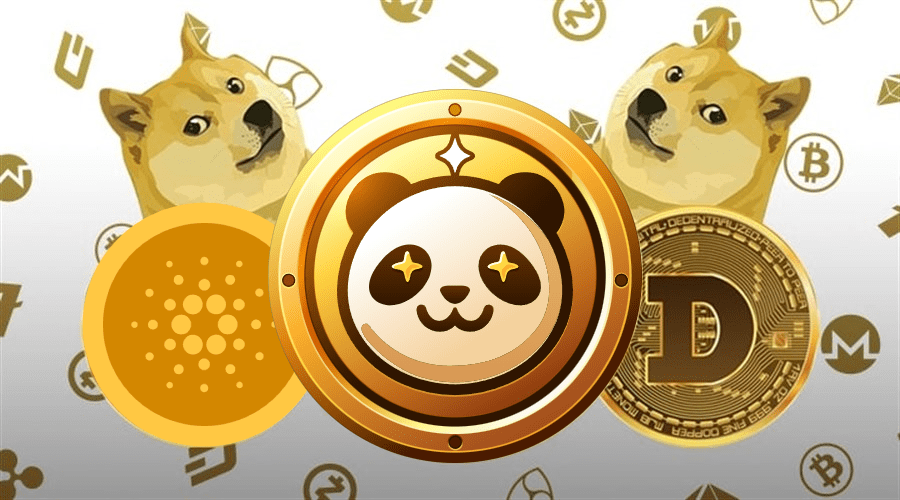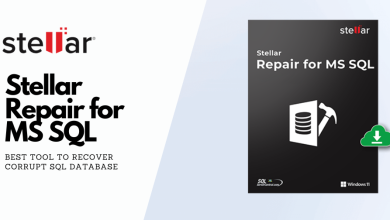Best 3 Tokens Below $1 That Can Outperform Solana

Solana stands out in the blockchain world with its layer-1 architecture, utilizing a unique blend of Proof of Stake (PoS) and Proof of History (PoH) to enable high-speed transactions while maintaining robust security. This fusion allows the network to process up to 50,000 transactions per second, making Solana a popular choice among developers for building decentralized apps (dApps). Despite its strong position in the crypto market, Solana is facing growing competition from other emerging players. With the onset of a new bullish cycle in the crypto market, cryptocurrencies like Dogecoin (DOGE), Cardano (ADA), and Pandoshi (PAMBO) are gaining attention as affordable alternatives that have the potential to surpass Solana’s performance.
Pandoshi (PAMBO)
Pandoshi has achieved a significant milestone by raising over $1.7 million within just two weeks, signaling a robust confidence from the market in its potential. This project is a testament to the foundational principles of blockchain technology – emphasizing decentralization, financial privacy, and user empowerment. Pandoshi is more than just a superficial addition to the crypto market; it’s a self-reliant and decentralized ecosystem in its own right.
The project’s comprehensive whitepaper underscores its commitment to high professional standards and deep technical knowledge, focusing on user-driven governance and financial autonomy.
Pandoshi’s architecture includes a Layer-2 network that utilizes the Proof of Stake protocol. This not only provides a greener alternative to traditional Proof of Work models but also adds to the ecosystem’s sustainability. The ecosystem is diverse, comprising a decentralized exchange, a non-custodial wallet that empowers users by not holding their assets, interactive Metaverse games, educational initiatives, and cryptocurrency-compatible prepaid cards, all under the umbrella of its native token PAMBO, initially launched on the Ethereum blockchain.
Click Here To Take Part In Pandoshi Presale
PAMBO itself is structured as a deflationary token, employing a buy-and-burn mechanism to increase its scarcity. This involves purchasing tokens at market price and then permanently removing them from circulation. The value of PAMBO is further supported by transaction fees generated on the exchange, which are used to buy back and retire more PAMBO tokens, thereby reducing the supply and enhancing the token’s value.
In exciting recent developments, the Pandoshi team has announced progress ahead of their planned schedule, particularly with the development of their non-custodial wallet. This upcoming beta version, supporting all EVM-compatible networks, is set to enhance accessibility and user convenience, available as both a browser extension and a mobile app for iOS and Android.
Pandoshi’s rapid development and strategic approach to its ecosystem components demonstrate its commitment to reshaping the landscape of decentralized finance.
Dogecoin (DOGE)
Dogecoin was an early pioneer in the meme coin sector when it emerged in 2013. However, it didn’t achieve widespread popularity until the 2021 bull market. During that period, DOGE experienced an astonishing surge of 23,000%, reaching an all-time high of $0.738595. This remarkable growth propelled its market capitalization to over $70 billion, making it the fourth-most valuable cryptocurrency. A significant contributing factor to Dogecoin’s price surge was the vocal support it received from Elon Musk. The billionaire entrepreneur frequently tweeted in favor of the playful coin, which had a noticeable impact on its value. Additionally, Dogecoin has cultivated a robust and dedicated community of enthusiasts who have played a pivotal role in sustaining its relevance. This strong community support could potentially lead to another significant rally in 2024. Notably, Dogecoin has witnessed a 52.62% price increase in the past three months, indicating a resurgence in investor interest and growth potential.
Cardano (ADA)
Much like Solana, Cardano is a layer-1 blockchain platform that places a strong emphasis on scalability and advanced features. Cardano utilizes a proof-of-stake (PoS) algorithm to establish consensus regarding the blockchain’s state. The network, which made its debut in 2017, is committed to research-driven development. While this approach ensures that Cardano adopts only thoroughly researched blockchain solutions, it has also led to the network lagging behind in development at times. For instance, Cardano introduced smart contract functionality in 2021, which was more than five years after Ethereum’s launch of the same technology. Since this milestone, there has been a significant surge in both developer and user activity on the platform. The integration of smart contracts enables developers to deploy decentralized applications on the network, making it increasingly appealing to users in the DeFi space. Cardano has recently achieved a significant milestone, processing over 78 million transactions throughout its existence.
Click Here To Take Part In Pandoshi PresaleVisit the links below for more information about Pandoshi (PAMBO):
Website: https://pandoshi.com/
Whitepaper: https://docs.pandoshi.com/





